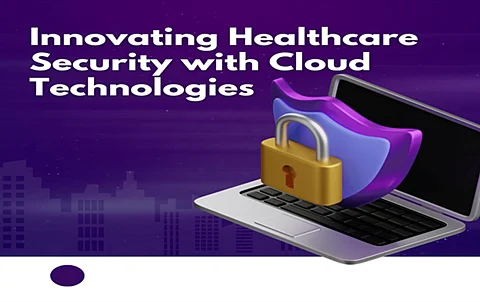

In today's rapidly evolving healthcare sector, data security stands as the cornerstone of trust between providers and patients. The healthcare industry's shift toward cloud computing offers promising avenues to reduce operational costs and enhance accessibility, yet it also brings heightened concerns about the safety of sensitive patient information. In his insightful article, Prakash Reddy Vanga delves into these complexities, detailing the security innovations that are reshaping how patient data is managed in the cloud while ensuring compliance with stringent regulations.
One of the main security advances in healthcare cloud systems is end-to-end encryption. Using AES-256 encryption, healthcare professionals ensure that the data of their patients is properly stored both when in transit and when at rest. This standard encryption method keeps data safe from unauthorized access even in the unlikely event of a breach. Whereas encryption at rest has become ubiquitous, the protection of encryption keys remains a concern, with numerous organizations not practicing best-of-breed key management. In his discussion, emphasis on better key management and deployment of sophisticated encryption methods reflects a critical step towards reducing external and internal threats.
The healthcare industry’s approach to securing patient data is also evolving through the adoption of advanced role-based access control (RBAC) systems. Traditional RBAC systems offer static permission structures, but He illustrates how more dynamic and context-aware systems are emerging. By integrating factors such as location, time, and patient-provider relationships, healthcare providers can tailor access control to the specific needs of medical personnel. This ensures that critical data is accessible only to those who need it, at the appropriate times. Furthermore, the article explores the impact of this innovation on reducing inappropriate access incidents, underlining the importance of continuously assessing and adjusting access controls based on clinical roles.
Another breakthrough discussed is the integration of privacy-preserving analytics in cloud-based healthcare platforms. The challenge of balancing advanced data analytics with patient privacy has led to the rise of techniques such as federated learning and homomorphic encryption. These technologies enable healthcare organizations to leverage vast amounts of patient data for research and operational insights without compromising confidentiality. Through federated learning, data can be processed and analyzed locally on devices, ensuring that sensitive information never leaves the premises.
As healthcare infrastructure goes to the cloud, the legacy authentication methods that have long been employed to access patient records no longer hold. He delves into the importance of multi-factor authentication (MFA) and biometric authentication in upgrading healthcare security architectures. With the use of biometrics, for instance, fingerprint or facial recognition, the healthcare sector guarantees that authentication is both secure and convenient. Context-aware authentication, which dynamically changes security levels depending on the context, also adds strength to access procedures.
Blockchain technology is yet another advanced solution that is increasingly finding its way in healthcare data security. Being decentralized, blockchain facilitates immutable audit trails, which implies that all patient data access is logged and cannot be tampered with after the fact. This ensures transparency and accountability, key factors in fostering trust between healthcare providers and patients. He highlights the promise of blockchain in revolutionizing healthcare data exchange through secure and verifiable transactions.
In the future, the emergence of quantum computing represents a new challenge to conventional encryption techniques. He refers to the necessity of quantum-resistant encryption as an anticipatory response to safeguard patient data against impending risks. With advancing quantum computing capabilities, current encryption protocols may become susceptible to decryption attacks. Quantum-resistant encryption represents a future-oriented solution through the use of algorithms that are resistant to quantum-type attacks.
The migration of healthcare to cloud infrastructure also needs to be supported by seamless integration of existing systems with new cloud platforms. He explains how middleware, like custom API gateways, plays a critical role in facilitating communication between old and new systems. Containerization, where legacy applications are isolated in secure containers, is another method that enables legacy software to run securely alongside new cloud technologies.
In summary,Prakash Reddy Vanga's in-depth analysis gives a clear indication of how healthcare organizations are tackling the challenges of cloud-based data security. The innovations mentioned—ranging from sophisticated encryption to the implementation of AI-driven threat detection and blockchain-based audit trails—demonstrate how the healthcare sector is meeting the challenge of protecting patient data in a cloud-led world. As technology advances, His vision reveals that the future of healthcare security is in proactive, multi-faceted strategies that balance both accessibility and privacy.
